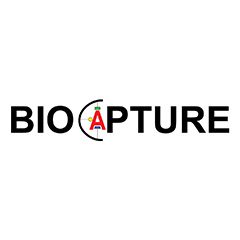Nanoparticle screening and characterization based on QCM and MIP-ELISA assays
Host Institute
Department of Chemistry & Biomedical Sciences, Linnaeus University
Host Country
Sweden
Start date
During the period July 1st 2017 – November 1st 2017
The candidate will be employed at the Department of Chemistry & Biomedical Sciences, Faculty of Health & Life Sciences at Linnaeus University and is planned to be enrolled in the Chemistry PhD program under the supervision by Prof. Ian A. Nicholls.
Project description
The ultimate objective of this research is the development of hierarchical material architectures, materials with controlled structure at the molecular, nano and micrometer scales for the detection and selection of proteins with post-translational modifications (PTMs), in particular molecularly imprinted polymers (MIPs). Among the more than 300 different types of protein PTMs only a handful have been extensively investigated at the proteome level. Modification-specific enrichment techniques combined with advanced mass spectrometry methods and computational data analysis have revealed a surprisingly large extent of PTMs in proteins. Nevertheless, a lack of efficient affinity-based enrichment techniques causes several of the modifications to escape detection leading to an underestimate of their importance and erroneous mechanistic conclusions.
In this project, a strategy for the screening and characterization of MIP nanoparticle recognition properties is to be devised using a quartz crystal microbalance (QCM) based approach, and in parallel MIP-target capture protocols are to be established using MIP fluorescent light-up sensors, with validation of the MIP capture using either MALDI or ESI mass spectrometry, or MIP-ELISA assays.
The project will include secondments to one or more of the following partner organizations: University of Malmö, Sweden (MAH), University of Southern Denmark, Odense (DK), Cancer Research UK Manchester (UK), Proteome Sciences, London (UK), ReSyn Biosciences, Gauteng (South Africa) – bioanalytical techniques, biomarker assays, modification specific proteomics; Pavia University (Italy) – theoretical modelling and characterization; University of Strathclyde, Glasgow (UK) and Federal Institute for Materials Research, BAM, Berlin (Germany) – molecular imprinting and sensor technology. The secondments will allow you to work with and oversee the implementation of the materials and to gain insight into academic and industrial work environments.
In addition to research activities, the applicant may be offered the possibility to take part in teaching, subject to availability, that can include the supervision of students at the BSc or MSc level. Further, it is expected that the student contribute to the collegial running of the laboratory. The candidate will be enrolled in the 4 year PhD-program in Chemistry at the Faculty of Health & Life Sciences and will be expected to complete a PhD, including completion of local academic and network wide training requirements, within this timeframe. The general research subject is “Chemistry” and the Faculty examines Doctors of Philosophy.
Group description
The Bioorganic & Biophysical Chemistry Laboratory at Linnaeus University carries out research in the field of molecular imprinting and related supramolecular and materials chemistry. A significant part of the group’s research is focused on functional materials and new material formats, in particular hierarchical architectures, and the application of these materials as biomaterials, and in catalysis and sensing applications.
The group is an integral part of the Linnaeus University Centre for Biomaterials Chemistry based at the Department of Chemistry & Biomedical Sciences, which focuses on the interplay of biological and biomimetic materials at the molecular, nano, micro and macroscopic levels and their use in therapeutic, diagnostic and catalysis-oriented applications.
Institute description
Linnaeus University – a creative and international knowledge environment promoting curiosity, creativity, companionship and utility.
Linnaeus University is one of Sweden’s newest higher education institutions. The university was formed when the University of Kalmar and Växjö University merged in 2010. Linnaeus University is located in Kalmar and Växjö, and currently has approximately 31,000 students in 150 degree programmes and 2,500 single-subject courses. Its high-quality research has had an impact, both nationally and internationally.
Ideal candidate
The successful candidate will have a masters’ degree (or equivalent) in chemistry preferably organic chemistry, polymer chemistry, biochemistry, analytical chemistry or experimentally oriented physical chemistry. Documented experimental laboratory experience is required and candidates with experience directly related to the research topic of the position outlined above will be given preference.
Working conditions and benefits
The candidate will become an employee of the Department of Chemistry & Biomedical Sciences and receive a competitive monthly gross salary in accordance with the EC Marie Sklodowska-Curie rules and Linnaeus University salary scale for post-graduate students. The contract period will last for 4 years.
Contact
For more information on this position, contact the hiring party: Prof. Ian Nicholls and Christian Andersson.
E-mail: ian.nicholls@lnu.se
E-mail: christian.andersson@lnu.se
Phone: +46-707576868
